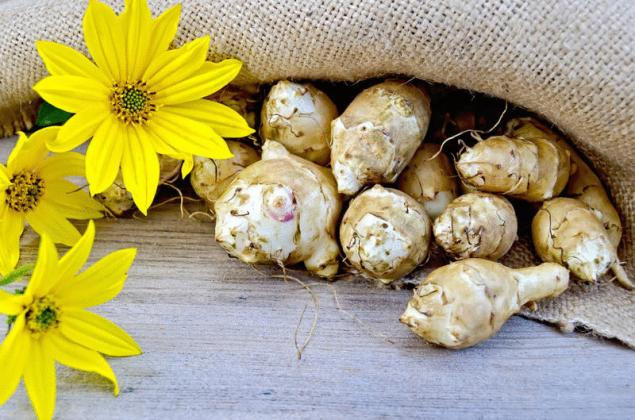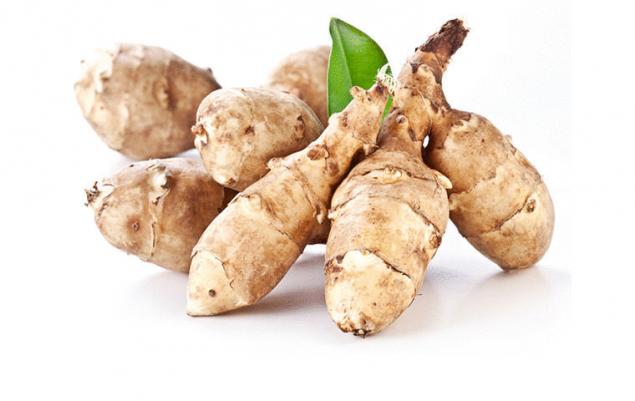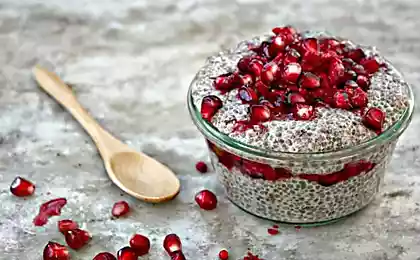479
Medicinal properties of the Jerusalem artichoke
The Jerusalem artichoke or topinambour. Perennial forage and food plant height from a half to four meters. His homeland — North America. In 1610 appeared in Europe and quickly gained credibility, especially in Belgium and Holland. In Russia, the Jerusalem artichoke has been known since the XVIII century, but not as food but as a curative means. It grows well and yields a rich harvest on unstable soils. The leaves of Jerusalem artichoke resemble sunflowers and baskets of flowers do not differ from him. For this resemblance, the Jerusalem artichoke has got another name "wild sunflower". The Jerusalem artichoke is very fast growing, forming a whole cvetushiy green bushes that during the flowering period is very attractive. The stems and roots of Jerusalem artichoke annually die off and the tubers, remaining all winter in the ground in spring, retain the freshness and nutritional value. Therefore, the Jerusalem artichoke can be a good source of food for early spring, and in the South it is possible to gradually dig out of the ground all winter. Tubers to eat can be boiled, baked and even raw (hence the name "artichoke"). Benefit of artichoke is that it is not susceptible to Colorado potato beetle and late blight. The taste of the roots of Jerusalem artichoke did not give potatoes. The tubers of this plant contains the polysaccharide inulin, vitamins b, C, phosphorus, iron. It is recommended to take in food with diabetes, as a means of reducing blood sugar. It is especially valuable for anemia.

The infusion of the tubers is at fault has long been used to treat heart disease and as a sedative.
What is the use of Jerusalem artichoke the Jerusalem Artichoke is shown in cardiovascular diseases such as anemia, hypertension, arrhythmia, poor circulation. Helps strengthen the nervous system after severe stress. Has diuretic and purgative properties.
The Jerusalem artichoke is shown to people suffering from heartburn and helps in the treatment of gastritis with high acidity. You can also do a preventive treatment with artichoke, gastric ulcer and duodenal ulcer.
For this you need 1 teaspoon of green or finely chopped root pour 1 Cup boiling water, drink this infusion 4-5 times a day 20 minutes before meals.
The juice of Jerusalem artichoke is recommended for nausea and pain in the stomach or intestines. With long locks.
To do this, 2-3 times a day for 1 tablespoon in between meals, drink the juice of Jerusalem artichoke.

In the spring the diet is necessary to introduce the Jerusalem artichoke, it will replenish Your body with all necessary vitamins and microelements. This way You will be able to protect the body from spring beriberi, in addition, it will allow you to avoid illness and epidemiological flu and boost your immunity.
Source: lubim-zhizn.ru/

The infusion of the tubers is at fault has long been used to treat heart disease and as a sedative.
What is the use of Jerusalem artichoke the Jerusalem Artichoke is shown in cardiovascular diseases such as anemia, hypertension, arrhythmia, poor circulation. Helps strengthen the nervous system after severe stress. Has diuretic and purgative properties.
The Jerusalem artichoke is shown to people suffering from heartburn and helps in the treatment of gastritis with high acidity. You can also do a preventive treatment with artichoke, gastric ulcer and duodenal ulcer.
For this you need 1 teaspoon of green or finely chopped root pour 1 Cup boiling water, drink this infusion 4-5 times a day 20 minutes before meals.
The juice of Jerusalem artichoke is recommended for nausea and pain in the stomach or intestines. With long locks.
To do this, 2-3 times a day for 1 tablespoon in between meals, drink the juice of Jerusalem artichoke.

In the spring the diet is necessary to introduce the Jerusalem artichoke, it will replenish Your body with all necessary vitamins and microelements. This way You will be able to protect the body from spring beriberi, in addition, it will allow you to avoid illness and epidemiological flu and boost your immunity.
Source: lubim-zhizn.ru/























